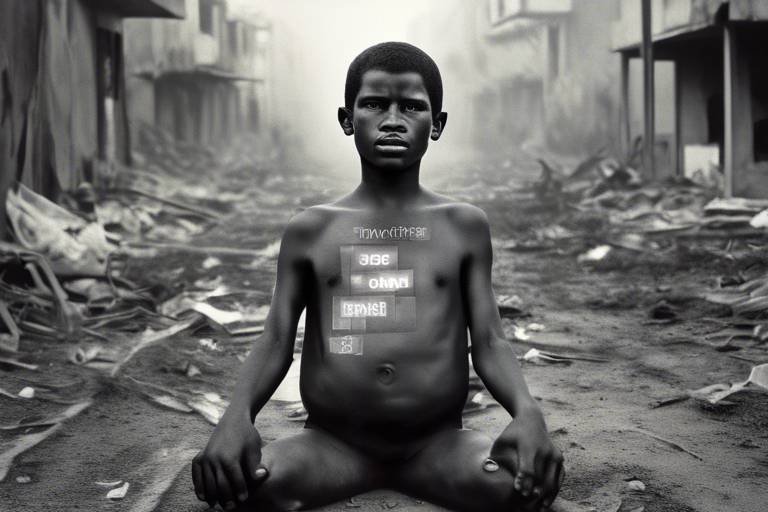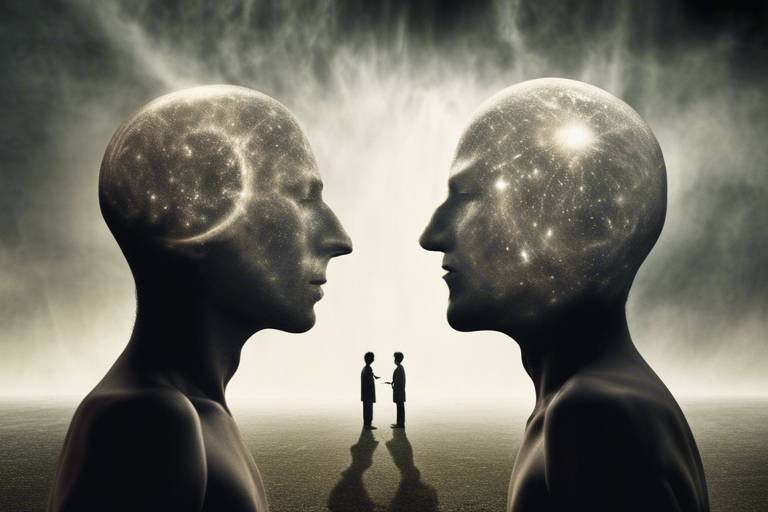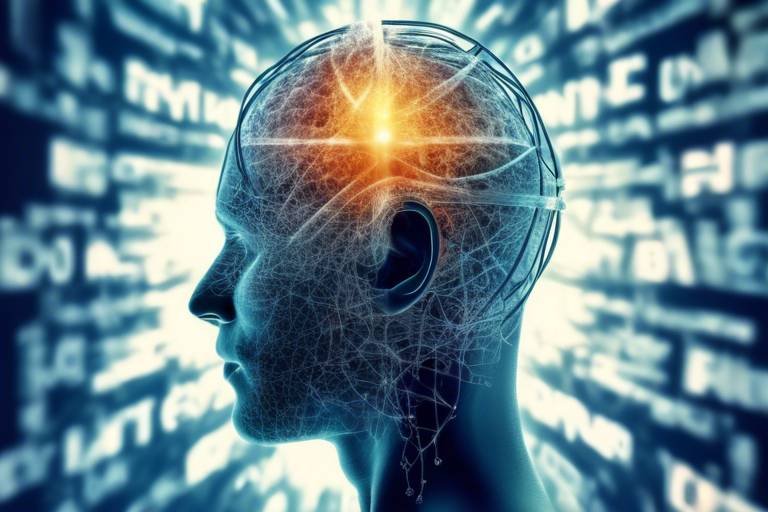How Ontology Shapes Our Understanding of Human Rights
In our quest to understand human rights, we often stumble upon the philosophical concept of ontology, which is the study of being and existence. You might be wondering, "What does the nature of existence have to do with rights?" Well, that's where the magic happens! Ontology provides a framework that helps us interpret and define what human rights truly mean in various cultural and social contexts. It's like the lens through which we view the world; depending on how we adjust that lens, the picture of human rights can change dramatically.
Imagine you’re wearing glasses that enhance certain colors while dulling others. In a similar way, our ontological beliefs can highlight or obscure different aspects of human rights. For instance, if we view rights as universal and inherent to all humans, we are likely to advocate for policies that support equality and justice globally. On the other hand, if we see rights as socially constructed and culturally specific, we may be more inclined to prioritize local customs over universal standards. Thus, ontology is not just a theoretical exercise—it has real-world implications for how we advocate for and protect human rights.
The interplay between ontology and human rights is particularly evident when we consider the historical evolution of these rights. Throughout history, different philosophical frameworks have influenced the recognition and enforcement of rights across societies. For example, during the Enlightenment, thinkers like John Locke emphasized natural rights, arguing that certain rights are inherent to human beings simply by virtue of being human. This ontological perspective laid the groundwork for modern human rights declarations. Conversely, other cultures may have developed their own ontological views that led to different interpretations of what rights should exist and how they should be upheld.
As we delve deeper into this topic, we will explore the philosophical foundations of human rights, including natural law and social contract theories. Each of these theories reflects distinct ontological assumptions that shape our understanding of rights. Natural law theory, for instance, posits that rights are universal and derived from human nature itself, while social contract theory suggests that rights arise from agreements among individuals within a society. This distinction highlights the relational aspect of ontology in defining rights.
Ultimately, understanding ontology is crucial not just for philosophers or academics, but for anyone interested in the future of human rights. As global challenges evolve, so too will our understanding of what rights we should uphold. By examining how ontological beliefs influence our perceptions of rights, we can better navigate the complexities of human rights advocacy in an increasingly interconnected world. So, let’s keep this conversation going, because the more we understand ontology, the better equipped we are to champion human rights for everyone, everywhere.
- What is ontology? Ontology is the philosophical study of being and existence, focusing on understanding what it means to exist and how we categorize different entities.
- How does ontology relate to human rights? Ontology shapes our understanding of human rights by influencing how we define and interpret these rights within various cultural and social contexts.
- What are natural law and social contract theories? Natural law theory posits that human rights are inherent and universal, while social contract theory suggests that rights arise from agreements among individuals within a society.
- Why is it important to understand the historical perspectives on human rights? Historical perspectives reveal how ontological beliefs have influenced the development and enforcement of rights, helping us understand current debates and challenges.
- What role does culture play in the understanding of human rights? Cultural perspectives significantly impact how human rights are understood and implemented, leading to diverse interpretations and applications across different societies.
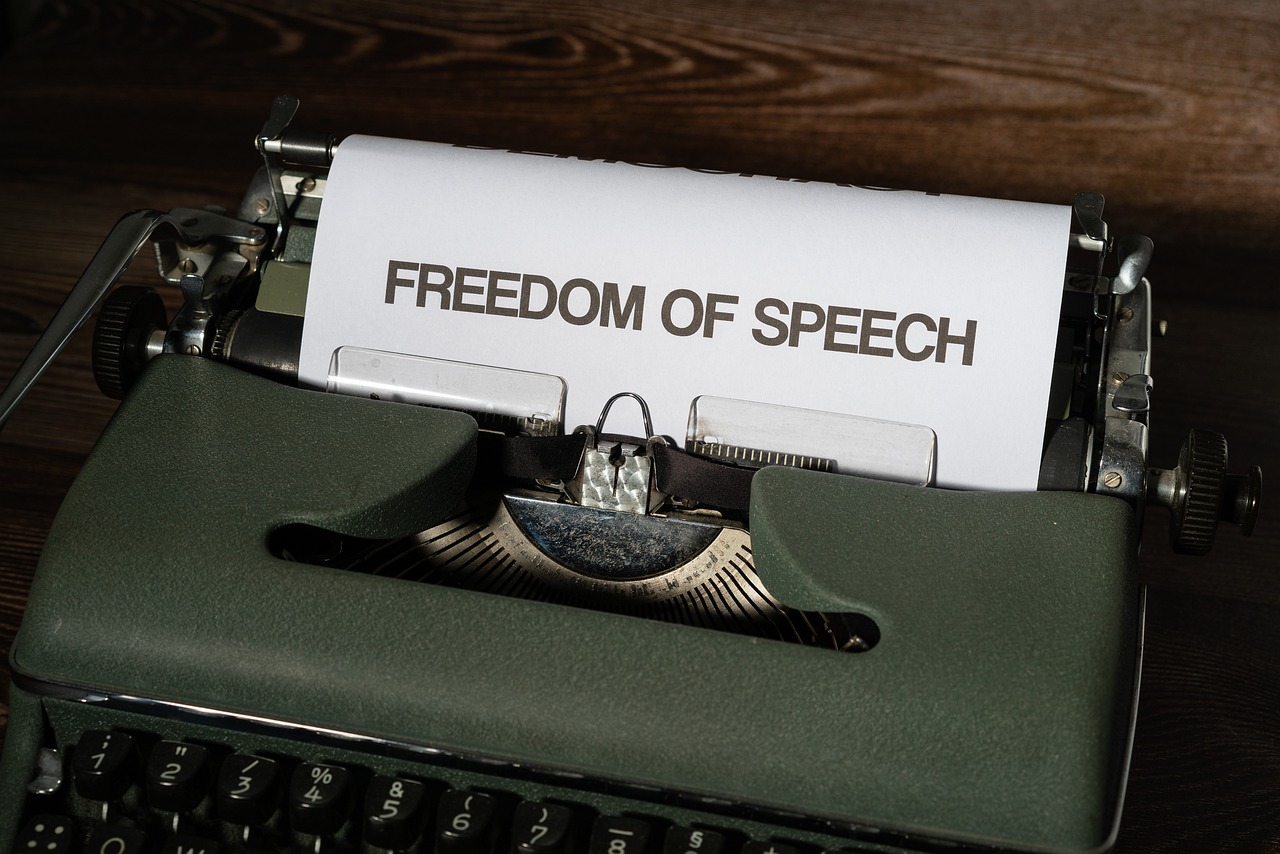
The Concept of Ontology
Ontology, at its core, is the philosophical study of being and existence. It dives deep into the questions of what it means to exist and what kinds of things exist in the world. This might sound a bit abstract, but stick with me—understanding ontology is crucial when we start talking about human rights. Why? Because our beliefs about existence shape how we perceive rights, responsibilities, and the very fabric of society itself.
Imagine you're at a dinner party, and the conversation turns to rights. Some people might argue that rights are universal, applicable to everyone regardless of culture or background. Others might insist that rights are culturally specific, varying from one society to another. This debate isn't just about opinions; it's deeply rooted in ontological beliefs. Those who see rights as inherent to human nature often subscribe to a natural law perspective, whereas those who view rights as social constructs lean towards social contract theories. This fundamental difference in understanding existence and the nature of rights can lead to vastly different interpretations and implementations of human rights.
To illustrate this, let's consider a few key ontological questions that can influence our understanding of human rights:
- What does it mean to be human? This question can impact how we define rights. If we believe that being human comes with certain inherent qualities, we might argue for universal rights based on those qualities.
- Are rights granted by society or are they inherent? This distinction can lead to different approaches in advocating for rights, affecting everything from legislation to grassroots movements.
- How do different cultures perceive existence? Cultural ontologies can shape the way rights are prioritized and implemented, leading to a rich tapestry of interpretations across the globe.
Understanding these ontological perspectives not only enriches our comprehension of human rights but also invites us to reflect on our own beliefs and biases. It encourages us to ask critical questions: Are we viewing rights through a lens that is too narrow? Are we considering the vast array of cultural contexts that shape our understanding of what it means to have rights? By engaging with these questions, we can foster a more inclusive and nuanced discussion about human rights that respects both universal principles and cultural specificities.
In conclusion, ontology is not just a dry philosophical concept; it is a dynamic framework that informs our understanding of human rights. By exploring the nature of existence, we can better appreciate the complexities surrounding rights in contemporary society. So, the next time you find yourself in a discussion about human rights, remember that the underlying ontological beliefs can significantly influence the conversation. It's all about understanding the roots of our beliefs, which can lead to a more profound appreciation of the rights we advocate for and defend.

Historical Perspectives on Human Rights
The journey of human rights is akin to a winding river, shaped by the landscapes of history, culture, and philosophy. To truly grasp the essence of human rights today, we must dive into the past and explore how ontological beliefs have sculpted their evolution. From ancient civilizations to modern societies, the recognition and enforcement of human rights have been heavily influenced by the prevailing philosophical frameworks of the time.
In ancient cultures, rights were often seen through the lens of divine will or natural order. For instance, in ancient Greece, philosophers like Aristotle posited that certain rights were inherent to human nature, reflecting a belief in natural law. This idea laid the groundwork for the notion that rights are universal and not merely granted by governments. As we transition to the medieval period, we encounter the influence of religious doctrines, where human rights were often intertwined with spiritual beliefs and the concept of a higher moral order.
Fast forward to the Enlightenment, and we see a significant shift. Thinkers like John Locke introduced the idea of the social contract, arguing that individuals consent to form societies and thus create rights through mutual agreements. This ontological perspective emphasized the relational aspect of human existence and rights, suggesting that rights are not just inherent but also constructed through social interactions. The Enlightenment was pivotal, as it sparked revolutions and movements that demanded recognition of individual rights, culminating in documents like the Declaration of Independence and the Declaration of the Rights of Man and of the Citizen.
As we moved into the 20th century, the aftermath of World War II led to a global acknowledgment of human rights, resulting in the Universal Declaration of Human Rights in 1948. This document was a monumental milestone, reflecting a collective understanding that human rights should transcend cultural and national boundaries. However, the debate between relativism and universalism emerged, highlighting differing ontological views on whether rights are universal truths or culturally specific constructs. This ongoing dialogue underscores the complexity of human rights in a globalized world.
| Period | Key Philosophers/Influencers | Key Concepts |
|---|---|---|
| Ancient Civilizations | Aristotle | Natural Law |
| Medieval Period | St. Augustine | Divine Rights |
| Enlightenment | John Locke | Social Contract |
| Post-WWII | United Nations | Universal Declaration of Human Rights |
Through these historical lenses, we can see how ontological beliefs have not only influenced the theoretical underpinnings of human rights but also their practical applications. The evolution of human rights reflects a dynamic interplay between philosophical thought and societal needs, revealing a tapestry woven from various cultural threads. Understanding this history is crucial as we navigate the complexities of human rights discussions today, reminding us that our current frameworks are built upon centuries of philosophical inquiry and social struggle.
- What is ontology in relation to human rights? Ontology is the philosophical study of being and existence, which shapes how we understand and interpret human rights across different cultures.
- How have historical perspectives influenced modern human rights? Historical perspectives provide context for the evolution of human rights, revealing how philosophical frameworks have shaped their recognition and enforcement.
- What role does culture play in the understanding of human rights? Culture significantly impacts the interpretation and application of human rights, leading to diverse perspectives that reflect differing ontological beliefs.

Philosophical Foundations
When we dive into the philosophical foundations of human rights, we uncover a rich tapestry of thought that has evolved over centuries. At the heart of this exploration are two major theories: Natural Law and Social Contract. These theories serve as the backbone of our understanding of rights, each presenting a unique ontological perspective that shapes how we view our existence and our entitlements within society.
Natural Law Theory posits that human rights are not just social constructs but are inherent and universal, derived from the very essence of human nature. Imagine a world where rights are as fundamental as the air we breathe—this is the essence of natural law. It suggests that regardless of cultural differences, there exists a common thread of rights that binds all humanity. This ontological view emphasizes that our existence is intrinsically linked to these rights. Just as we cannot separate ourselves from the need for food and shelter, we cannot detach our existence from the rights that protect our dignity and freedom.
On the flip side, we have the Social Contract Theory, which introduces a different flavor to our understanding of rights. This theory suggests that human rights arise from agreements made among individuals within a society. Think of it as a mutual pact where people come together, agreeing to respect and uphold each other's rights in exchange for security and order. Here, ontology plays a critical role as it highlights the relational aspect of existence—our rights are defined not just by who we are as individuals but by our relationships with one another. This perspective prompts us to ask: Are rights inherently ours, or do they exist because we choose to recognize and honor them collectively?
Both theories, while distinct, are interwoven in their implications for human rights. They challenge us to consider important questions about the nature of existence and the framework of rights. For instance, how do we reconcile the universal claims of natural law with the contextual realities highlighted by social contract theory? A table summarizing the key differences between these two foundational philosophies can help clarify these complex ideas:
| Theory | Core Idea | Ontology Perspective |
|---|---|---|
| Natural Law | Rights are inherent and universal | Rights exist independently of society |
| Social Contract | Rights arise from societal agreements | Rights are relational and contextual |
Ultimately, the philosophical foundations of human rights invite us to engage in a deeper dialogue about what it means to be human. They challenge us to reflect on our beliefs and assumptions about rights, urging us to consider how our understanding of existence shapes our advocacy for justice and equality. As we navigate the complexities of modern society, these philosophical frameworks continue to influence not only our individual perspectives but also the collective discourse surrounding human rights. Are we merely passive recipients of rights, or are we active participants in defining and defending them? This ongoing conversation is vital as we strive to create a more just and equitable world for all.
- What is ontology? Ontology is the philosophical study of being and existence, focusing on how we define and interpret reality.
- How does ontology relate to human rights? Ontology influences our understanding and application of human rights by shaping the frameworks through which we view existence and entitlement.
- What are the main philosophical theories related to human rights? The two main theories are Natural Law, which views rights as inherent and universal, and Social Contract, which sees rights as arising from societal agreements.
- Why is the debate between relativism and universalism important? This debate highlights how different ontological views affect our understanding of which rights should be recognized and upheld globally.

Natural Law Theory
is a philosophical doctrine that asserts that human rights are not merely social constructs but are inherent and universal, grounded in human nature itself. This perspective posits that certain rights are self-evident and universally applicable, transcending cultural and societal boundaries. Imagine a world where rights are as natural as the air we breathe; this is the essence of natural law. It suggests that just as we have physical needs, we also have moral needs that must be recognized and respected.
The roots of natural law theory can be traced back to ancient philosophers like Aristotle and later, Thomas Aquinas, who argued that human beings possess an inherent dignity that demands recognition and protection. According to this view, rights are not granted by governments or societies; rather, they are intrinsic to our existence as human beings. This ontological perspective emphasizes that our very being is linked to our rights, which are derived from our nature.
Natural law theory is often contrasted with positive law, which is the set of laws created by human beings. While positive law can vary significantly from one society to another, natural law remains constant, suggesting a moral foundation for rights that exists independently of governmental or societal approval. This brings us to an important question: if rights are inherent, what happens when they are violated? The theory posits that individuals have a moral obligation to uphold these rights and challenge injustices.
To illustrate the principles of natural law theory, consider the following key components:
- Universality: Rights are applicable to all individuals, regardless of their background or culture.
- Inherent Nature: Rights are derived from the fundamental nature of being human.
- Moral Foundation: Rights are based on moral principles that transcend legal systems.
This framework has significant implications for human rights advocacy. It provides a moral compass that can guide actions and policies aimed at protecting individuals from oppression and injustice. For instance, in cases where legal systems fail to protect basic human rights, advocates can appeal to natural law to argue for change. This approach underscores the idea that rights are not just legal entitlements but moral imperatives that demand respect and protection.
In conclusion, natural law theory offers a profound perspective on the nature of human rights, emphasizing their universality and inherent quality. By understanding this ontological framework, we can better appreciate the moral dimensions of rights and the responsibilities that come with them. As we navigate the complexities of human rights in a diverse world, the principles of natural law remind us that our shared humanity binds us together, and that the recognition of rights is essential for fostering a just and equitable society.
- What is natural law theory? Natural law theory is the belief that certain rights are inherent to all human beings and are not contingent upon laws or beliefs of any particular culture or society.
- How does natural law differ from positive law? Natural law is based on moral principles that are universal and inherent, while positive law is created by humans and can vary across different societies.
- Why is natural law important for human rights? It provides a moral foundation for advocating and protecting human rights, emphasizing that these rights are essential to our existence as human beings.

Social Contract Theory
Social Contract Theory is a fascinating philosophical framework that suggests human rights are not merely inherent but are instead the result of an implicit agreement among individuals within a society. Imagine a group of people living in a state of nature, where chaos reigns and everyone acts solely in their own self-interest. To escape this turmoil, they come together and agree to form a society, establishing rules and norms that protect their collective well-being. This is the essence of the social contract.
At its core, this theory emphasizes the relational aspect of ontology. It posits that our rights stem from our interactions and agreements with one another rather than being preordained. In this view, rights are not static; they evolve as society changes and as individuals renegotiate their contracts. This dynamic nature of rights can lead to a more inclusive understanding of human rights, as societies can adapt their agreements to reflect the values and needs of their members.
Philosophers like Thomas Hobbes, John Locke, and Jean-Jacques Rousseau each provided unique interpretations of the social contract. For instance, Hobbes believed that in order to escape the brutish nature of humanity, individuals must surrender certain freedoms to a sovereign authority, while Locke argued for a more balanced approach, where individuals retain rights to life, liberty, and property. Rousseau, on the other hand, emphasized the importance of the "general will," suggesting that true freedom comes from aligning individual interests with the collective good.
These differing perspectives illustrate how ontology influences our understanding of rights. Rights, according to the social contract theorists, are not universal truths but rather agreements that can vary based on cultural and societal contexts. This leads to a crucial question: What happens when the social contract fails? When rights are violated or ignored, it often sparks movements for reform, as individuals and groups seek to renegotiate the terms of their social agreements. This ongoing dialogue is vital for the evolution of human rights, as it reflects the changing values and beliefs of society.
In practical terms, the implications of Social Contract Theory can be seen in various governance systems around the world. For example, democracies often rely on a social contract where the government is accountable to the people, and rights are protected through laws and institutions. Conversely, in authoritarian regimes, the social contract may be skewed, leading to widespread violations of rights as the government prioritizes its power over the welfare of its citizens.
Ultimately, Social Contract Theory invites us to consider the fluidity of human rights and the importance of ongoing dialogue in their protection and promotion. As we navigate complex global challenges, understanding these contractual relationships can help us advocate for a more equitable and just society.
- What is Social Contract Theory? It is a philosophical framework that suggests human rights arise from agreements among individuals within a society.
- How does Social Contract Theory relate to human rights? It posits that rights are not inherent but are established through social agreements, emphasizing the relational aspect of ontology.
- Who are the key philosophers associated with Social Contract Theory? Notable figures include Thomas Hobbes, John Locke, and Jean-Jacques Rousseau, each offering different perspectives on the social contract.
- Can social contracts change over time? Yes, as societies evolve, so do the agreements that govern them, leading to changes in the recognition and enforcement of human rights.

Modern Interpretations of Rights
In today's world, the interpretation of human rights is as dynamic as the societies that uphold them. The landscape of rights discourse has evolved significantly, influenced by various ontological assumptions that shape our understanding of equality, justice, and universality. As we navigate through complex global challenges, it becomes essential to recognize how these interpretations are not merely theoretical but have profound implications for real-world policies and practices.
For instance, the concept of equality has taken on new dimensions. No longer confined to the idea of equal treatment under the law, modern interpretations now encompass a broader spectrum, including economic, social, and cultural rights. This shift reflects an understanding that true equality cannot exist without addressing systemic inequalities that affect marginalized communities. The ontological assumption here is that human rights must be inclusive and responsive to the diverse needs of individuals, not just a one-size-fits-all approach.
Furthermore, discussions around justice have also transformed. The traditional view often emphasized punitive measures; however, contemporary interpretations advocate for restorative justice. This perspective is grounded in the belief that healing and reconciliation are vital for societal progress. In this light, ontology plays a crucial role—it challenges us to consider the relationships between individuals and communities and how these relationships influence our conception of justice.
When it comes to the universality of rights, the debate is ongoing. While many advocate for universal human rights that transcend cultural boundaries, others argue for a more relativistic approach that recognizes the importance of cultural context. This dichotomy raises essential questions: Should rights be universally applied, or should they be tailored to fit cultural nuances? The ontological frameworks we adopt will significantly influence our answers to these questions.
To illustrate these modern interpretations more clearly, consider the following table that outlines key differences between traditional and contemporary views of human rights:
| Aspect | Traditional View | Modern View |
|---|---|---|
| Definition of Rights | Inherent and static | Dynamic and evolving |
| Focus | Individual rights | Collective and community rights |
| Approach to Justice | Punitive | Restorative |
| Universality | Absolute | Contextual |
As we look to the future, the interplay between ontology and human rights will undoubtedly continue to shape our understanding and advocacy efforts. Engaging with these modern interpretations allows us to challenge existing paradigms, ensuring that human rights remain relevant and effective in addressing the complexities of our time.
- What is the significance of ontology in human rights?
Ontology helps us understand the nature of existence and how it influences our perceptions of rights, shaping the frameworks we use to advocate for them. - How have modern interpretations of rights changed?
Modern interpretations have expanded the scope of rights to include economic, social, and cultural dimensions, emphasizing inclusivity and addressing systemic inequalities. - What is the difference between traditional and modern views of justice?
While traditional views often focus on punitive measures, modern perspectives advocate for restorative justice, emphasizing healing and reconciliation. - Are human rights universal?
The debate continues, with some arguing for universal application and others advocating for culturally contextualized rights.

Ontology and Cultural Contexts
When we dive into the realm of ontology and its relationship with human rights, it's essential to recognize that our understanding is deeply intertwined with cultural contexts. Each culture carries its own set of beliefs, values, and historical narratives that shape how rights are perceived and practiced. For instance, what might be considered a fundamental human right in one society could be viewed differently in another. This divergence often stems from differing ontological frameworks, which can lead to significant variances in the interpretation and implementation of rights.
Imagine ontology as the lens through which we view the world. Just as a photographer uses different filters to capture various aspects of a scene, cultures employ distinct ontological perspectives to define what it means to be human and what rights are inherently tied to that existence. For example, in Western societies, there is a strong emphasis on individualism, where rights are often framed as personal entitlements. In contrast, many Indigenous cultures may prioritize community and collective rights, reflecting a more relational ontology.
Moreover, the debate between relativism and universalism in human rights further illustrates how ontology interacts with cultural contexts. Relativists argue that human rights should be understood within the specific cultural frameworks in which they arise, suggesting that there isn't a one-size-fits-all approach to rights. On the other hand, universalists advocate for a set of rights that should be recognized globally, regardless of cultural differences. This ongoing tug-of-war highlights the critical role that ontological beliefs play in shaping our understanding of rights.
To visualize this, consider the following table that outlines some key differences between relativist and universalist perspectives:
| Aspect | Relativism | Universalism |
|---|---|---|
| Definition of Rights | Contextual and culturally specific | Inherent and applicable to all |
| Focus | Cultural practices and beliefs | Global standards and principles |
| Implementation | Varies by culture | Consistent across nations |
Real-world case studies also provide insight into how ontological beliefs manifest in different cultural contexts. For instance, consider the implementation of women's rights in various countries. In some cultures, women's rights are viewed through an ontological lens that emphasizes equality and empowerment, leading to progressive laws and practices. Conversely, in other contexts, traditional beliefs may hinder the recognition of women's rights, emphasizing roles that are often restrictive.
As we navigate these complex interactions between ontology and cultural contexts, it's crucial to remain open-minded and respectful of differing perspectives. The future of human rights discourse will undoubtedly be shaped by these ongoing conversations, requiring us to critically examine our own ontological assumptions and their implications for rights advocacy worldwide.
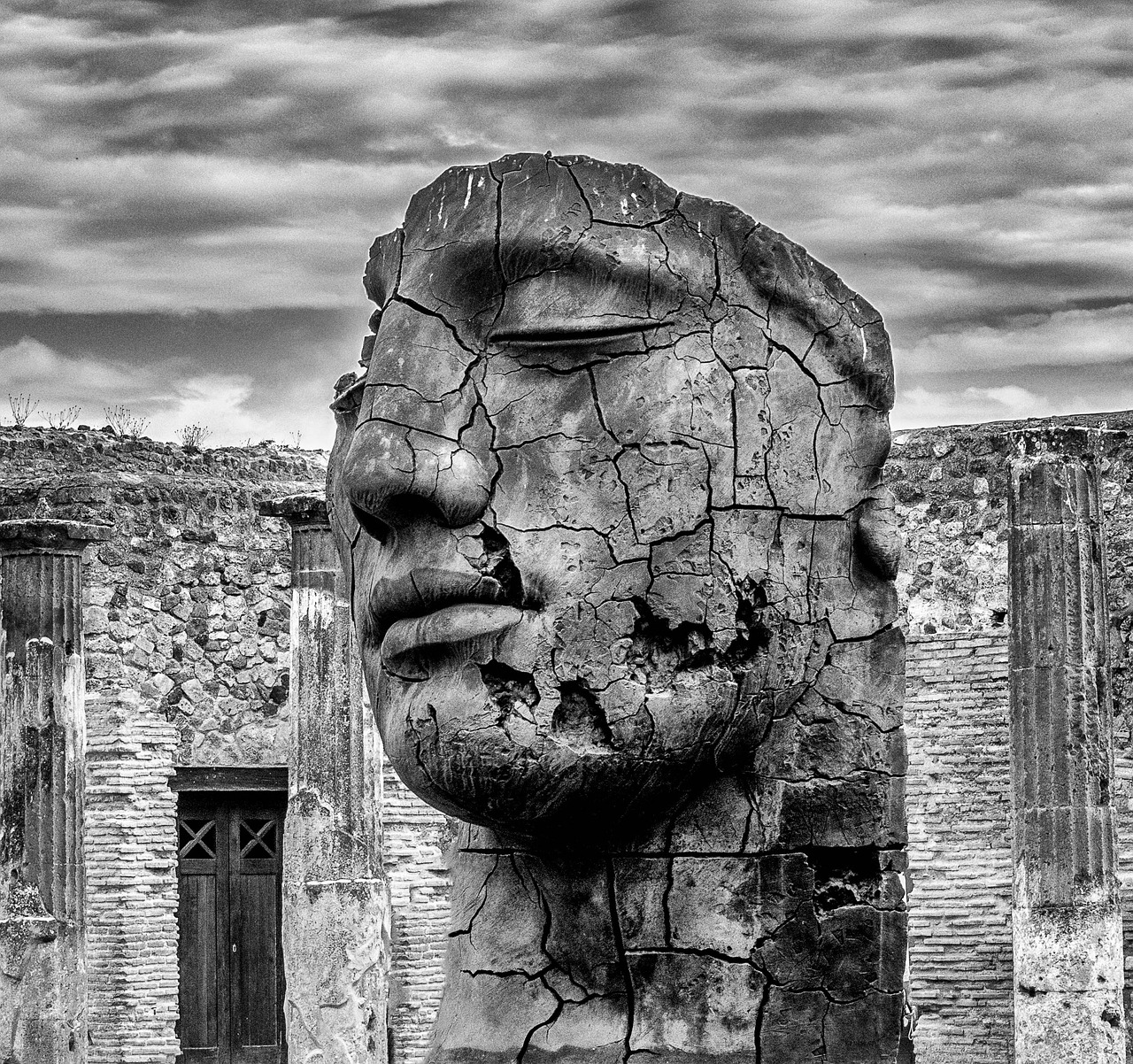
Relativism vs. Universalism
The debate between relativism and universalism in the context of human rights is a fascinating and complex issue that often leaves many scratching their heads. At its core, relativism argues that human rights are not one-size-fits-all; instead, they are shaped by cultural, social, and historical contexts. This perspective suggests that what is considered a right in one culture may not hold the same significance in another. For example, freedom of speech is a cherished right in many Western societies, but in others, it may be limited due to cultural norms or governmental control.
On the flip side, universalism posits that human rights are inherent to all people, regardless of their cultural background. This view is grounded in the belief that certain rights, such as the right to life and freedom from torture, are fundamental to human dignity and should be recognized everywhere. The Universal Declaration of Human Rights, adopted by the United Nations in 1948, embodies this idea, asserting that every individual is entitled to these rights simply by being human.
To illustrate the tension between these two perspectives, consider the following table:
| Aspect | Relativism | Universalism |
|---|---|---|
| Definition | Rights are culturally specific and context-dependent. | Rights are inherent and apply to all individuals universally. |
| Examples | Gender roles, freedom of expression in different cultures. | Right to life, prohibition of torture. |
| Challenges | May lead to the justification of human rights abuses. | Can be seen as imposing Western values on non-Western cultures. |
This ongoing debate raises significant questions about the nature of human rights and their application. Can we truly claim that certain rights are universal when cultural contexts vary so widely? Or does the push for universal rights risk undermining the unique traditions and values of different societies? These questions illustrate the delicate balance that must be struck between respecting cultural diversity and advocating for fundamental human rights.
As we navigate these complex waters, it's essential to recognize that neither relativism nor universalism holds all the answers. Instead, a nuanced approach that considers both perspectives may be necessary to foster a more inclusive and effective human rights discourse. This could involve dialogue between cultures to find common ground while respecting individual identities. Ultimately, the goal should be to ensure that all individuals can enjoy their rights without fear of oppression or discrimination, regardless of their cultural background.
- What is the main difference between relativism and universalism? Relativism emphasizes that human rights are culturally specific, while universalism asserts that certain rights are inherent to all humans, regardless of culture.
- Can human rights be universal if cultures differ significantly? This is a contentious issue; while some argue that certain rights are fundamental, others believe that cultural contexts must be considered in their application.
- How do these perspectives impact human rights advocacy? Relativism can lead to justifications for rights violations, while universalism may be perceived as imposing external values on different cultures.

Case Studies in Application
The intersection of ontology and human rights is not just a theoretical construct; it has tangible implications in the real world. Several case studies showcase how different ontological beliefs shape the understanding and application of human rights in various contexts. For instance, consider the contrasting approaches to human rights in Western democracies versus certain non-Western societies. In many Western countries, the ontological belief in individualism and personal autonomy leads to a strong emphasis on civil liberties, such as freedom of speech and the right to privacy. This perspective often prioritizes the individual over collective rights, resulting in robust legal frameworks designed to protect personal freedoms.
On the other hand, in some collectivist societies, the ontological view leans towards the community's well-being over individual rights. Here, human rights may be interpreted through the lens of social harmony and collective responsibility. For example, in countries like China, the government often emphasizes the right to development and social stability over individual freedoms. This difference in perspective can lead to significant disparities in how rights are recognized and enforced, illustrating the profound impact of ontology on human rights discourse.
To further illustrate this point, let’s examine two notable case studies:
| Case Study | Ontology Perspective | Human Rights Implications |
|---|---|---|
| United States vs. China | Individualism vs. Collectivism | Emphasis on personal freedoms vs. focus on social stability |
| Indigenous Rights in Australia | Relational Ontology | Recognition of land rights and cultural heritage |
In the case of Indigenous rights in Australia, a relational ontology emphasizes the connection between Indigenous peoples and their land. This perspective has led to significant legal advancements, such as the recognition of native title rights, which affirm the cultural and spiritual ties that Indigenous communities have with their ancestral lands. The ontological understanding that these rights are not merely legal constructs but are deeply embedded in the identity and existence of these communities has driven advocacy efforts and policy changes.
These case studies highlight how ontology is not merely an academic exercise but a vital aspect of understanding and advocating for human rights. The way we perceive existence and relationships profoundly influences our approach to rights, shaping the legal frameworks and societal norms that govern them. As we continue to navigate the complexities of global human rights issues, recognizing the role of ontology can provide deeper insights into the motivations and challenges behind human rights advocacy.
- What is ontology in the context of human rights?
Ontology refers to the philosophical study of being and existence, which influences how we understand and interpret human rights. - How do cultural contexts affect human rights?
Cultural perspectives shape our understanding of rights, leading to different interpretations and applications based on ontological beliefs. - Can you provide examples of how ontology impacts human rights?
Case studies like the differences between Western and non-Western societies showcase how varying ontological views lead to different emphases on individual versus collective rights. - Why is understanding ontology important for human rights advocacy?
Understanding ontology helps advocates navigate the complexities of human rights issues and fosters a more nuanced approach to rights recognition and enforcement.

The Future of Human Rights Discourse
As we stand at the crossroads of an increasingly interconnected world, the future of human rights discourse is not just a matter of legal frameworks or political agreements; it is deeply rooted in our evolving understanding of ontology. With global challenges such as climate change, migration, and technological advancements, the way we conceptualize human rights will inevitably shift. The ontological questions surrounding existence, identity, and community will influence how rights are perceived and enforced.
One of the most pressing issues is the impact of technology on human rights. As artificial intelligence and digital surveillance permeate our lives, we must ask ourselves: what does it mean to have rights in a digital age? Are our traditional notions of privacy and freedom still applicable? These questions highlight the need for an ontological reassessment of rights as they relate to technology. We may find ourselves needing to redefine what it means to be human in a world where machines can replicate human behavior and decision-making.
Moreover, the rise of global movements advocating for social justice is reshaping the landscape of human rights. Movements like Black Lives Matter and #MeToo have brought to light the importance of intersectionality in human rights discourse. This means recognizing that experiences of oppression are not monolithic and that different ontological perspectives must be included in the conversation. The future may see a more pluralistic approach to human rights, one that acknowledges the diverse realities of individuals based on their race, gender, sexuality, and socio-economic status.
Additionally, the debate between relativism and universalism will continue to play a significant role in shaping future human rights discussions. While universalists argue for a set of rights applicable to all humans, relativists contend that rights must be understood within cultural contexts. The challenge will be to find a balance that respects cultural differences while advocating for fundamental human dignity. This ongoing dialogue will require a nuanced understanding of ontology, as we navigate the complexities of identity and rights across various cultures.
To facilitate this evolving discourse, educational institutions and organizations must prioritize the integration of ontology into human rights curricula. By fostering discussions around the philosophical underpinnings of rights, we can cultivate a generation of thinkers who are equipped to tackle these pressing issues. Furthermore, interdisciplinary collaboration among philosophers, sociologists, and legal scholars will be crucial in developing frameworks that are both adaptable and robust.
In conclusion, the future of human rights discourse is ripe with potential and challenges. As we embrace a world that is rapidly changing, our understanding of ontology will be pivotal in shaping how we define, advocate for, and protect human rights. The journey ahead will not be easy, but it is essential for creating a just and equitable society for all.
- What role does ontology play in human rights? Ontology helps us understand the nature of existence and identity, which are crucial for defining and interpreting human rights.
- How are technology and human rights related? Technology raises new questions about privacy, freedom, and identity, necessitating a reevaluation of traditional human rights frameworks.
- What is the significance of intersectionality in human rights? Intersectionality acknowledges that individuals experience oppression differently based on various factors, advocating for a more inclusive approach to human rights.
- Will human rights become more universal or culturally specific in the future? The future will likely see a balance between universal rights and culturally specific interpretations, as ongoing debates between relativism and universalism continue.
Frequently Asked Questions
- What is ontology and why is it important in understanding human rights?
Ontology is the philosophical study of being and existence. It’s crucial for understanding human rights because it influences how we define and interpret these rights within different cultural and social contexts. By grasping the principles of ontology, we can better comprehend the underlying beliefs that shape human rights discussions.
- How have historical perspectives influenced the development of human rights?
Historical perspectives reveal that ontological beliefs have significantly shaped the evolution of human rights. Different societies have recognized and enforced rights based on their philosophical frameworks, which in turn reflect their unique ontological views. This historical context helps us understand why certain rights are prioritized in some cultures over others.
- What role do philosophical theories play in human rights?
Philosophical theories, such as natural law and social contract, provide foundational perspectives that inform our understanding of human rights. Natural law theory posits that rights are inherent and universal, while social contract theory suggests that they arise from agreements among individuals. These theories highlight the importance of ontology in shaping our views on rights.
- How do cultural contexts affect the interpretation of human rights?
Cultural perspectives significantly impact how human rights are understood and implemented. Different ontological frameworks can lead to diverse interpretations and applications of rights across cultures. This means that what is considered a fundamental human right in one culture might not hold the same value in another.
- What is the debate between relativism and universalism in human rights?
The debate between relativism and universalism highlights how differing ontological views shape our understanding of rights. Relativism argues that rights are culturally dependent, while universalism asserts that certain rights should be recognized globally. This ongoing discussion reflects the complexities of applying human rights across various cultural contexts.
- How do case studies illustrate the impact of ontology on human rights?
Case studies provide concrete examples of how ontological beliefs manifest in real-world scenarios, affecting the protection and promotion of human rights. By analyzing these cases, we can see how different philosophical frameworks influence the practical application of rights in various contexts, shedding light on the challenges and successes in human rights advocacy.
- What does the future hold for human rights discourse?
As global challenges evolve, our understanding of human rights will continue to change. Ontology will play a pivotal role in shaping future discussions and frameworks for rights advocacy. By engaging with these philosophical underpinnings, we can better address emerging issues and promote a more inclusive understanding of human rights.

